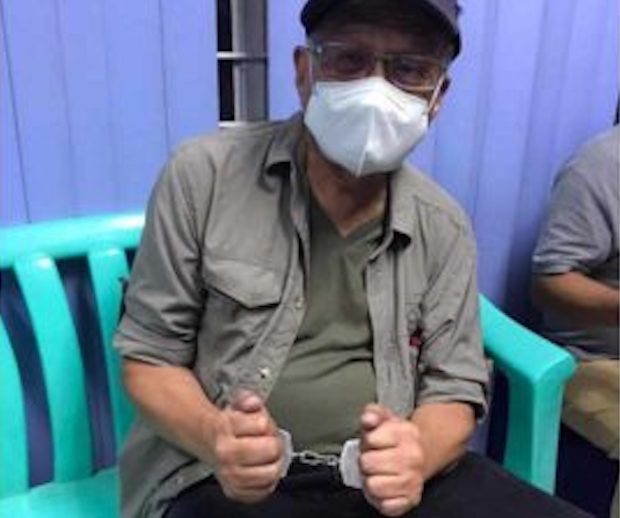Walden to be arraigned in Davao City on Jan. 26

Former Akbayan Rep. Walden Bello (Photo from his Facebook page)
DAVAO CITY — Sociology professor and former vice presidential contender Walden Bello will be arraigned here this month for the cyberlibel case filed against him by Vice President Sara Duterte’s aide Jefry Tupas after the Regional Trial Court (RTC) Branch 10 denied the motion filed by Bello’s lawyers to quash the indictment against him.
RTC 10 Judge Retrina Fuentes in an order issued on Dec. 28 cited Section 6, Rule 110 of the Rules of Criminal Procedure in denying the motion filed by Bello’s lawyers to quash the indictment against him by the City Prosecutor’s Office here on the cyberlibel case filed by Tupas, former city information officer here and now chief of the media and public relations division of the vice president’s office.
Bello’s lawyers earlier filed the motion to quash, arguing that the the statements published on Bello’s social media pages did not constitute an offense because it was a commentary on the official conduct of a public officer, referring to Tupas.
According to Fuentes, a motion to quash an information on the ground that the facts charged do not constitute an offense should be resolved on the basis of the allegations in the information. “Contrary to the accused allegation, a careful reading of the two information (on the libel and cyber libel cases) will reveal that the essential charges were sufficiently alleged therein. Both information disclosed “willful imputation of a crime,” Fuentes said in her decision.
She cited Section 6, Rule 110 of the Rules of Criminal Procedure which required that the information only needed to state the ultimate facts constituting the offense; and that the evidence and other details could be provided during the trial. She also ruled that the credibility of both the prosecution’s and the accused’s respective evidence may best be tested during the actual trial.
Article continues after this advertisementWith the court’s denial of their motion, Bello’s arraignment will proceed on Jan. 26 at the RTC 10 here, said defense Lawyers Luke Espiritu and Danilo Balucos in a statement.
Article continues after this advertisement“We regret the decision of Judge Fuentes but we are preparing for a long fight against the cyberlibel charge against Dr Bello. We remain confident that the courts will ultimately vindicate us,” said Espiritu, the lead counsel for the defense.
“We highly appreciate that Judge Fuentes has been giving Professor Bello all the available remedies provided in the Rules of Court,” said Balucos, also Bello’s defense counsel. “Though disappointed with the dismissal of the motion to quash, we have high hopes that the courts will eventually rule in favor of the basic constitutional right of freedom of expression.”
Bello’s lawyers also filed an urgent motion to resolve the petition for review on merit which they filed before the Secretary of Justice in July last year but which still remained pending until now. The DOJ initially dismissed the petition on procedural grounds August 30 last year but Bello had filed a motion for reconsideration 15 days later. “…disposing of the timely filed petition for review on mere trivial issues of technicalities contradicts the spirit of the department order which the Honorable Secretary himself issued,” the lawyers cited in the urgent motion. “It is like trying to emphasize the availability of a remedy which could not be availed.”
According to the lawyers, while the Rules of Court is silent on the period within which the Justice Secretary’s office is supposed to decide on the petition for review, Rule 116, Section 11, paragraph c provided that “the period of suspension shall not exceed sixty (60) days counted from the filing of the petition with the reviewing office.”
“The idea being that the court can consider the DOJ’s resolution of the appeal in deciding whether to continue with trial or simply dismiss the case,” the lawyers said in their motion. “However, if the appeal is not resolved within that 60-day period, the court can simply proceed with the arraignment of the accused and go through a full-blown trial, thereby rendering the appeal moot before the DOJ.”